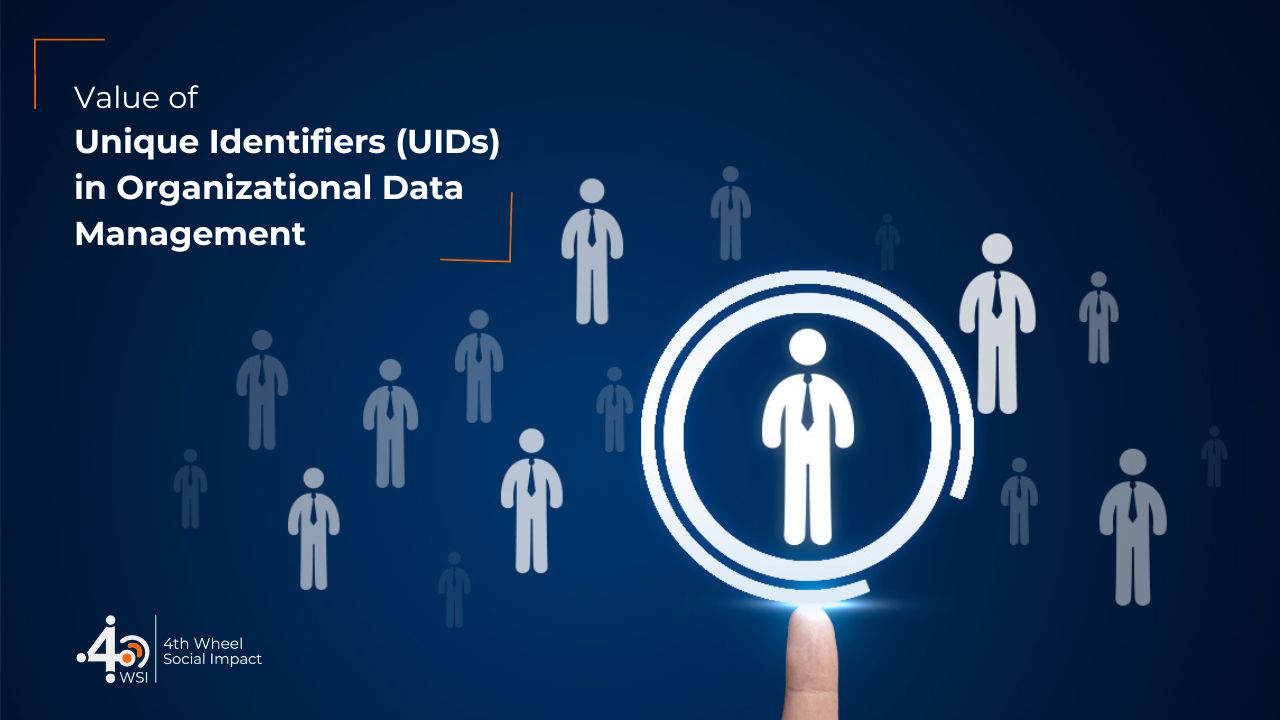In Organizational Data Management, Unique Identifiers (UIDs) are like magic codes that make sure data in companies is super organized and safe. The use of UIDs has revolutionized data management practices. They also ensure a foundation of reliability that is crucial for informed decision-making and efficient operations. Let’s take a look at the importance of unique identifiers:
10 Benefits of Using Unique Identifiers (UIDs) in Organizational Data Management
- Data Accuracy: Unique IDs ensure accurate and unambiguous identification of individuals. This helps prevent duplication, data entry errors, and misidentification, ultimately improving data quality.
- Efficient Data Management: Unique IDs streamline data management processes by simplifying data entry, retrieval, and analysis. This efficiency saves time and resources, reducing administrative burdens.
- Data Linkage: Unique IDs enable the linkage of data across various programs, interventions, or time points. This facilitates a comprehensive view of an individual’s journey within the organization, allowing for better-informed decision-making.
- Tracking Progress: The ability to track individual progress and outcomes over time is essential for evaluating the effectiveness of programs and assessing the impact of interventions. Unique IDs enable this longitudinal tracking.
- Personalization: Unique IDs support the personalization of services and interventions. Organizations can tailor their support to the specific needs and history of each participant, improving the overall experience and outcomes.
- Reporting and Accountability: Reporting to donors, stakeholders, and regulatory bodies becomes more accurate and transparent with unique IDs. It enhances accountability and demonstrates a commitment to data integrity.
- Privacy and Security: Unique IDs can be anonymized to protect the privacy and security of individuals’ personal information. This is especially important in cases where sensitive data is involved.
- Program Evaluation: For program evaluations and impact assessments, unique IDs are essential for tracking changes in the condition and well-being of program participants, enabling the organization to demonstrate the effectiveness of its initiatives.
- Risk Mitigation: By preventing data duplication and ensuring data accuracy, unique IDs reduce the risk of errors that could lead to incorrect decisions or resource misallocation.
- Long-Term Planning: Unique IDs support long-term planning by providing a historical record of program participation and outcomes. This information is valuable for shaping future strategies and interventions.





